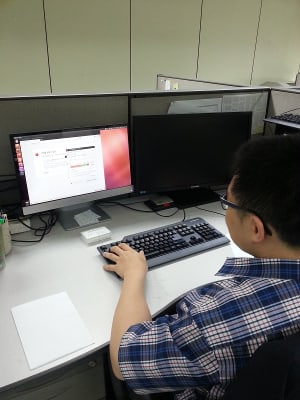Bukwang Pharmaceuticals cut IT costs and created business value with Ubuntu
Canonical
on 31 July 2014
Tags: Ubuntu Desktop

Challenge
Bukwang Pharmaceuticals has been developing and manufacturing drugs and personal hygiene products in South Korea since 1960. Today, it has over 600 employees based at various sites across the country.
Prior to its switch to Ubuntu, the company had 620 desktops, with 60% running Windows 7 and the remainder on Windows XP. When Microsoft’s support for Windows XP was terminated, Bukwang was faced with a new, more expensive Enterprise Assurance contract with Microsoft. This would also necessitate buying new PCs to run the new software. Together these factors would significantly increase the cost of Bukwang’s desktop deployment.
Considerations
The team at Bukwang already had some experience with open source software including OpenOffice, 7ZIP and Linux on the server. They had even developed an ERP system using open source components.
All the above gave them confidence that an open source solution could solve their desktop issues, but several obstacles remained. One, surprisingly, was cost. Linux is well known in Korea, due to its place on the curriculum at many universities. However, in the corporate world, many deployments are tied to expensive support contracts from suppliers like Red Hat, often priced per seat. The other was the prevalent use of Microsoft in the marketplace. Compatibility with its office productivity suite and popular software packages like Active-X would be a key requirement.
Solution
Of all the open source desktop platforms available, Ubuntu was considered the best fit for Bukwang Pharmaceuticals for a number of reasons:
- It is easy to install and requires minimal management overhead – in fact, two administrators were able to upgrade, test and roll Ubuntu out onto 390 PCs in just two weeks.
- Ubuntu is secure by design, greatly reducing the cost of monitoring security across the desktop estate.
- It features a remarkably user-friendly interface, making it easy for people who have grown up with Windows to use.
- It can co-exist easily with other platforms. Due to the country-wide prevalent use of Microsoft’s Active-X software, only 62% of the company’s PCs could be migrated away from Windows in the first instance, so interoperability was a must.
Results
In the first phase of the project, Bukwang Pharmaceuticals switched around 400 PCs to Ubuntu. Even before the planned migration of all remaining machines, savings on annual licensing alone totalled $300,000. And the benefits didn’t stop there.
In a country where Microsoft was so well entrenched, Bukwang’s migration to Ubuntu and Open Source proved to be of enormous interest in the business community. It generated a raft of free publicity in the media, including interviews with the Korean Ministry of Science, ICT and Future Planning.
Most exciting of all, however, was the new software skills the company gained, particularly in the rapid development of bespoke software – a platform for which Ubuntu is famously well suited. As a direct result of its experience with Ubuntu, Bukwang launched a successful software development subsidiary called Bukwang C&C, specialising in open source solutions for the Korean business market. As Sang-Hoon Kim, President and CEO of Bukwang Pharmaceutical, explained: “At first, we just wanted to save money. But we never expected the free publicity that would result, nor did we expect to launch a profitable new business. For all our success so far, however, it still feels like we are at the beginning of our open source journey.”

An enterprise Linux for everyone
Ubuntu powers millions of PCs and laptops around the world.
Ubuntu brings security, usability and stability together, offering you a platform for innovation, combined with the freedom that transparent, open source code offers.

Bring Ubuntu to your organization
Ubuntu Desktop combines enterprise-grade support, security and functionality with the best of open source.
Seamlessly integrate Ubuntu machines with your existing infrastructure and tools.
Newsletter signup
Related posts
Canonical releases Ubuntu 25.10 Questing Quokka
The latest interim release of Ubuntu comes with compatibility enhancements at the silicon level, accessibility upgrades and a robust security posture that...
A journey of a thousand smiles: Questing Quokka
Embarking on a quest can be serious business – whether you’re going off on a family holiday or traveling the hills of Britain in search of the holy grail, our...
Source to production: Spring Boot containers made easy
This blog is contributed by Pushkar Kulkarni, a Software Engineer at Canonical. Building on the rise in popularity of Spring Boot and the 12 factor paradigm,...
